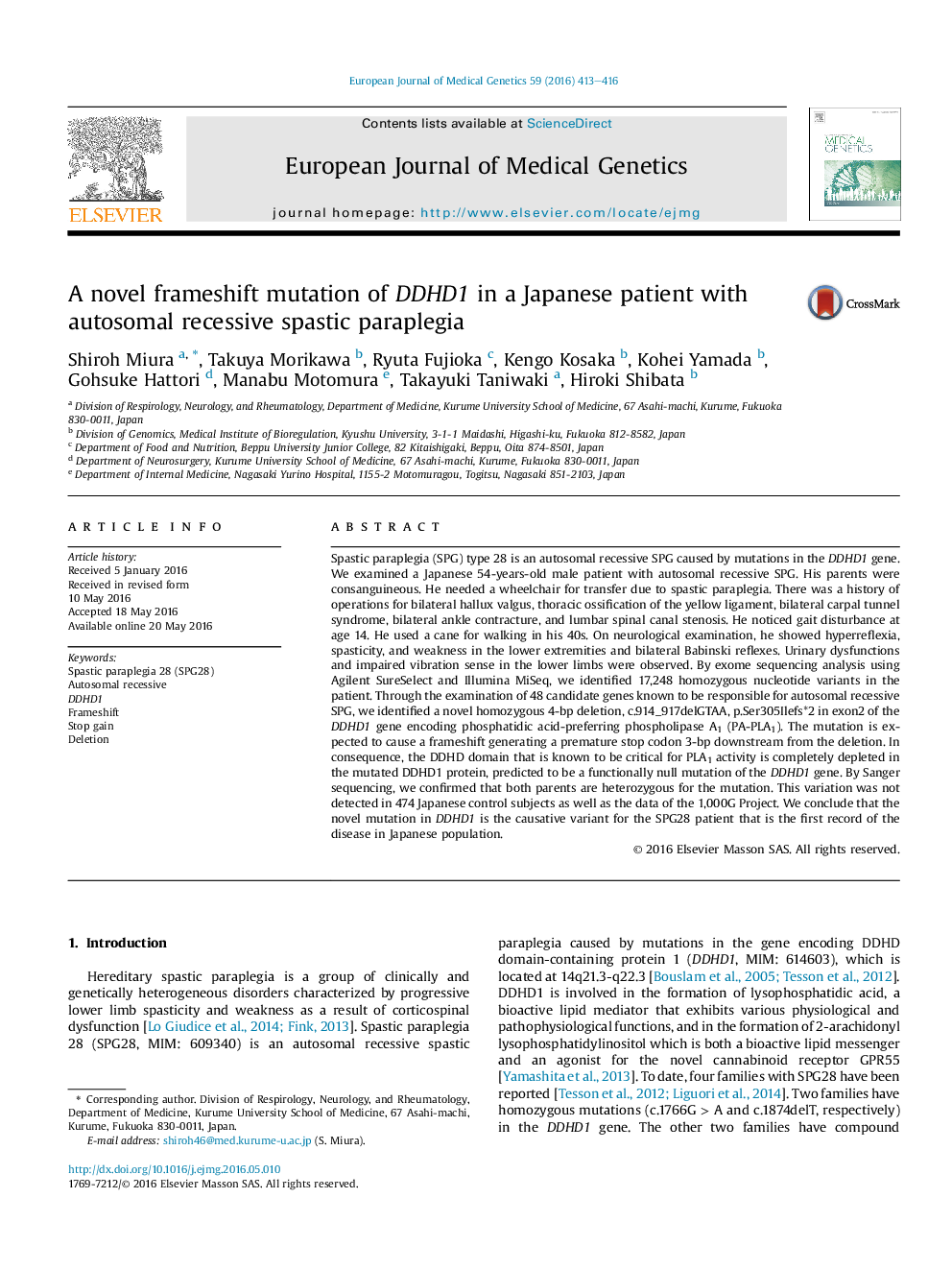| کد مقاله | کد نشریه | سال انتشار | مقاله انگلیسی | نسخه تمام متن |
|---|---|---|---|---|
| 2813671 | 1569467 | 2016 | 4 صفحه PDF | دانلود رایگان |
Spastic paraplegia (SPG) type 28 is an autosomal recessive SPG caused by mutations in the DDHD1 gene. We examined a Japanese 54-years-old male patient with autosomal recessive SPG. His parents were consanguineous. He needed a wheelchair for transfer due to spastic paraplegia. There was a history of operations for bilateral hallux valgus, thoracic ossification of the yellow ligament, bilateral carpal tunnel syndrome, bilateral ankle contracture, and lumbar spinal canal stenosis. He noticed gait disturbance at age 14. He used a cane for walking in his 40s. On neurological examination, he showed hyperreflexia, spasticity, and weakness in the lower extremities and bilateral Babinski reflexes. Urinary dysfunctions and impaired vibration sense in the lower limbs were observed. By exome sequencing analysis using Agilent SureSelect and Illumina MiSeq, we identified 17,248 homozygous nucleotide variants in the patient. Through the examination of 48 candidate genes known to be responsible for autosomal recessive SPG, we identified a novel homozygous 4-bp deletion, c.914_917delGTAA, p.Ser305Ilefs*2 in exon2 of the DDHD1 gene encoding phosphatidic acid-preferring phospholipase A1 (PA-PLA1). The mutation is expected to cause a frameshift generating a premature stop codon 3-bp downstream from the deletion. In consequence, the DDHD domain that is known to be critical for PLA1 activity is completely depleted in the mutated DDHD1 protein, predicted to be a functionally null mutation of the DDHD1 gene. By Sanger sequencing, we confirmed that both parents are heterozygous for the mutation. This variation was not detected in 474 Japanese control subjects as well as the data of the 1,000G Project. We conclude that the novel mutation in DDHD1 is the causative variant for the SPG28 patient that is the first record of the disease in Japanese population.
Journal: European Journal of Medical Genetics - Volume 59, Issue 8, August 2016, Pages 413–416
